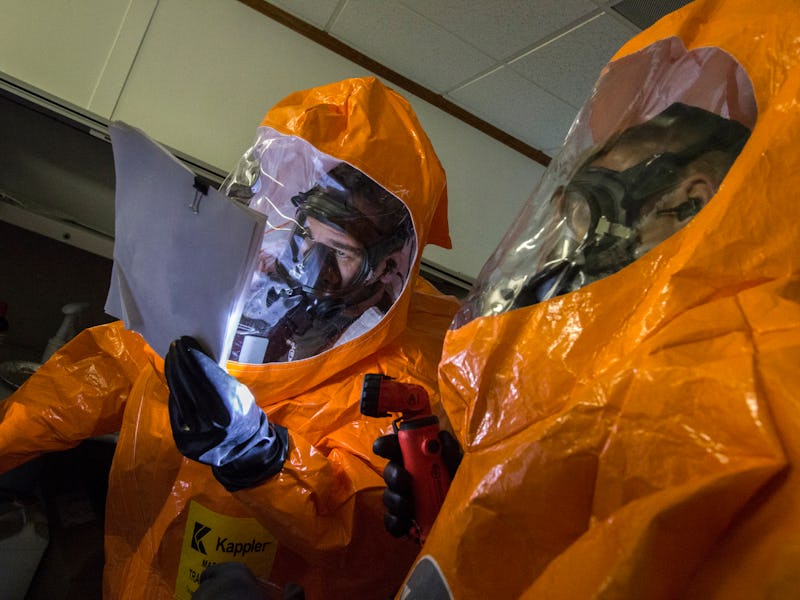US Department of Defense Says "Synthetic Biology" Is a Top Bioterror Threat
It's not here ... yet.

Synthetic biology hasn’t changed the world yet, but it probably will in the not-too-distant future. This emerging reality has defense experts nervous: As new tools like CRISPR make it cheaper and easier than ever to edit DNA, the possibility that such tools would be used for nefarious purposes will soon become a reality.
In light of this concern, the Department of Defense commissioned the National Academies of Sciences, Engineering, and Medicine to write a report on the potential role of synthetic biology in engineering new bioterror threats. The report, published Tuesday, outlines how the tools of synthetic biology could conceivably be leveraged to resurface diseases like smallpox or even produce new diseases for the purposes of waging biological warfare. And while this threat is not one we’re immediately facing, the rate at which synthetic biology technologies are emerging in agriculture and medicine drove the Department of Defense to explore just how real this threat is and which areas pose the greatest concern.
The report’s authors looked at the current capabilities in the field of synthetic biology to determine what the areas of greatest and lowest risk are. They concluded that one of the most probable risks facing the US is scientists in illicit labs — or potentially in foreign governments’ labs —recreating existing viruses like smallpox that are kept under tightly controlled conditions. Additionally, the report’s authors identified the possibility that scientists could also modify existing diseases to be deadlier or even whip up entirely new viruses or bacteria.
“Right now, recreating pretty much any virus can be done relatively easily. It requires a certain amount of expertise and resources and knowledge,” Michael Imperiale, a professor of microbiology at the University of Michigan and the chair of the committee that produced the report, tells NPR. Due to the rapidly changing nature of synthetic biology, though, it’s hard to establish timelines for these future threats.
“It’s impossible to predict when specific enabling developments will occur; the timelines would depend on commercial developments as well as academic research, and even converging technologies that may come from outside this field,” Imperiale said in a statement. “So it is important to continue monitoring advances in synthetic biology and other technologies that may affect current bottlenecks and barriers, opening up more possibilities.”
Therefore, we will probably continue to hear more about this developing concern in coming months and years. And while it’s probably not an immediate threat, the outlook is not great. “The US government should pay close attention to this rapidly progressing field, just as it did to advances in chemistry and physics during the Cold War era,” adds Imperiale.